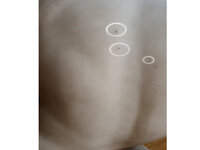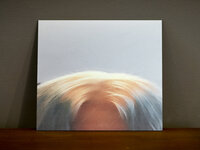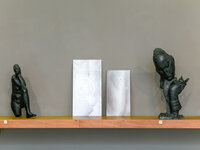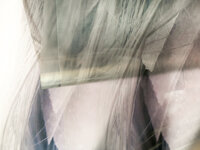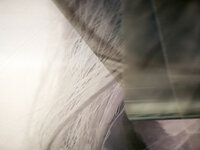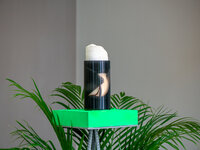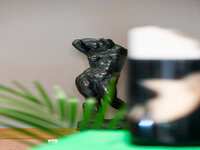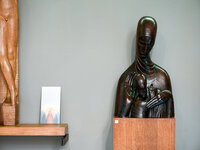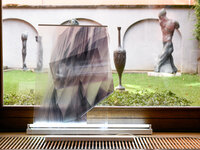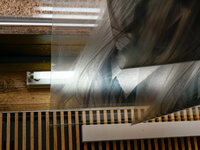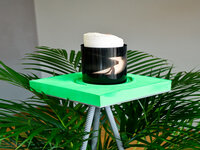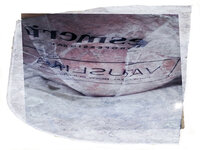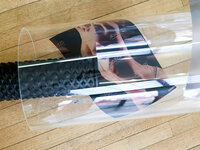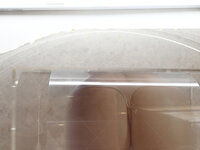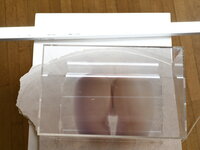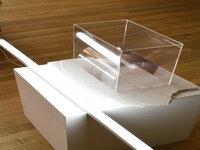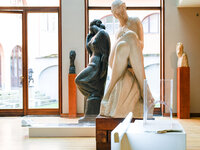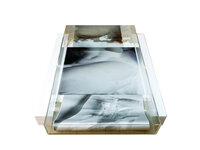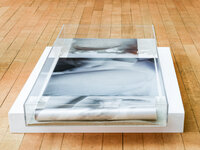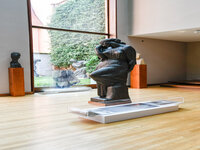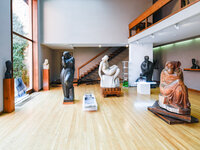ARCHEOLOGY OF ARCHETIPES
The Meštrović Atelier
Zagreb, Croatia, 2020. - 2021.
Installation
Long-term, continuous monitoring of the work of individual authors in a special way affects the need for continuous revaluation of one's own understanding of art. With each shift in the topics that the artists devote themselves to, the ideas that intrigue them, the media in which they create and the aesthetics that they develop, they contribute to a new understanding of the settings of the individual and universal creative process. An encounter with the works of Martina Miholić, collected under the title Fantasy of Floating - plasticity of escapism, allows consideration of the logic of reminiscence and anticipation of certain experiences through artistic practice. Furthermore, by observing the work through the prism of the thematic and conceptual chaining of individual cycles, examples of (un)probable coincidences are revealed.
From the very beginning, Martina deals with a wide spectrum of archetypal representation and understanding of the female body. The dominant visual and symbolic associations present in her work are linked to interconnected concepts such as the modification of appearance for the debatable goal of beautification, social conditioning, physical pain, the contradiction between the natural and the unnatural. The artist's approach is based on the characteristic use of the photographic medium. The photos most often show her alone, then anonymous bodies and, more recently, landscapes. In the context of recent cycles, they function as a suggestion of the act of manipulation, that is, the use of filters, and as visual information, which is spatially and narratively expanded in relation to the associated objects.
The playful, glittering and transparent appearance of the materials that prevails in this exhibition simultaneously suggests the fluidity of the "finishing" of the body and the strangeness of the island ambience. It is about an indefinite, hybrid space created at the gap between reality, fantasy and virtuality, in which the author very subtly and non-literally places a reference to the Little Siren, a symbol of painful physical transformation and loss of identity (body).The seductive aestheticization of the works, mostly achieved by the ready-made principle, offers a plethora of strong sub-themes under the veil of tenderness and lightness, such as the aggressiveness and destructiveness of the media and social networks in the violent imposition of beauty canons. The tension between the attractiveness of the form and the weight of the content is hinted at by the title, especially the word escapism. The term was coined only in the 1930s in order to define the departure, primarily through literature and films, from the very harsh reality of that time largely conditioned by the great financial and then political crisis. Although Martina apparently does not pay attention to expressing a more comprehensive social commentary, it is very easy to recognize the reflexes of the current situation in the dystopian and escapist polyvalence of the spatial installation, even in the gesture of moving away from it. Reaching for elements of previous works/cycles indicates the recognition of the importance of past experiences for the formation of new ones.
The moment of escape, implied by the very symbolism of the island, is also reflected in the meaning of "fantasy about floating (floating)". Coincidentally or not, when preparing to write this foreword, I started sorting through the materials that Martina sent me for the exhibition PROJEKT6: Instructions for Approaching, held at the beginning of 2010 also at the VN Gallery. On that occasion, she exhibited the Catalogue, a book in which, instead of visual works, the reactions and interpretations of art historians, artists, friends and acquaintances, students at the time, who wrote, regardless of their level of knowledge of visual arts, were collected. reviews of Martina's sketches. Among the texts, short essays or notes, I discovered a list of offered titles for the works. The first that Deana Petričić designed was Fantasy of Floating. To my great surprise, Martina was not aware of the exciting coincidence of the anticipation of the current exhibition. Is it a harmless coincidence, a subconscious return to the past or a long-term maturation of an idea, materialized after twelve years? The possibility of multiple answers leads me to even greater curiosity and close monitoring of the further plastic growth of Martina's interests.
Barbara Vujanovic
_tn.jpg)
_tn.jpg)
